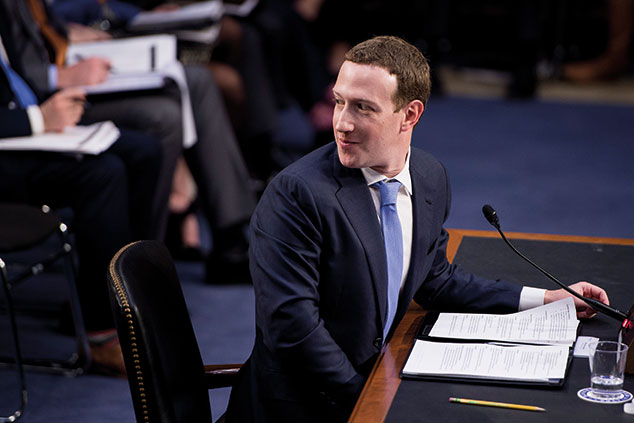
Facebook’s chief executive Mark Zuckerberg is “tired of getting served”, says Laura Forman in The Wall Street Journal. Following a year of headline-making scandals and a precipitous decline in the stock price, the social-media giant has been spending billions of dollars to shore up security across its platforms. But that means Facebook is now having to make decisions about harmful speech, political advertising and cybersecurity – “hefty burdens for any company to bear, particularly for one with 2.7 billion users”.
In an opinion piece for The Washington Post and Ireland’s Independent, Zuckerberg calls instead for global regulation of social-media companies. “Fed up, Zuckerberg is now trying to redirect public outrage and serve it to regulators instead.” That might seem like constructive advice on the surface. “Underneath, it is more self-serving.”
Who benefits?
Indeed it is, says Bloomberg. Zuckerberg’s proposals cover four areas: harmful content, elections, privacy and data portability. Each would create its own problems if adopted as government policy, but they all have one thing in common: they’d all be good for Facebook. Zuckerberg would like someone else to decide what constitutes terrorist propaganda and hate speech on his platforms, for example. It’s hard to see how this would benefit anyone but Facebook. “There’s no reason to expect every platform to adhere to the same content policies, but every reason to expect them to exercise judgement and accept accountability.”
Zuckerberg is also keen on the EU’s behemoth rule book, known as the GDPR. This is a huge burden on companies that undermines innovation, annoys users and offers few benefits to anyone except the tech giants, who can more easily afford to comply. Similarly, making data portable would be of benefit mainly to those companies that have the sophisticated tools and processes to exploit it profitably – companies like Facebook.
There are two big problems with Zuckerberg’s proposals, agrees Hugo Rifkind in The Times. The first is that they are mutually contradictory. How does one protect democracy and curb “harmful content” while also safeguarding privacy at the same time? The bigger problem is how you would impose “global” rules. Can he really believe that new rules agreed upon with Singapore and Germany will be accepted by America, say?
Still, Zuckerberg is not stupid. Perhaps he simply recognises that there is a conflict between the service he offers and the responsibilities of governments. “With the peerless, messianic arrogance for which his industry is famed, his conclusion seems to be that this is more their problem than his. Worse still, maybe he’s right.”
He’s certainly got a point, says Carys Afoko in The Guardian. The question is not whether to regulate companies like Facebook, but how to. Social media is now an integral part of life for millions of people, and unpoliced content can do much harm. Facebook can clearly not be blamed for all the failings in society, but it is reasonable to expect that social-media companies and governments play their part in drawing up rules and enforcing behaviour. “If the laws as they currently stand can’t cope with the shift to virtual spaces, then they’ll need to be rewritten for the digital age.”
Governments and pro-regulation groups should act together to ensure the tech titans take more responsibility for content, agrees the FT. “Silicon Valley libertarianism has run its course: social-media companies must work with others to forge a consensus on how to regulate the internet – or risk having more draconian rules imposed on them.”